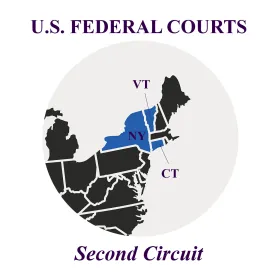After nearly 10 years of litigation, the Second Circuit has weighed in on an appeal in an adversary proceeding arising out of the Lehman Brothers bankruptcy. The August 11, 2020, decision confirms that a trustee’s termination of a swap agreement falls within the safe harbor of Section 560 of the Bankruptcy Code, and further holds that if a swap agreement incorporates the terms of an indenture (or other document governing a trust) specifying payment priorities, then those provisions also fall within Section 560’s safe harbor.
At issue in this appeal were dozens of synthetic collateralized debt obligations (CDOs) and their related swap agreements. Each CDO entered into a credit default swap agreement with Lehman Brothers Special Financing, Inc. (LBSF). Under the terms of the swaps, LBSF agreed to make regular payments to the CDOs, and the CDOs agreed to provide credit protection to LBSF for certain reference obligations. Each CDO owned a basket of highly rated securities to serve as collateral and ensure that sufficient funds were available to make credit protection payments.
The swap agreements contain provisions as to how to calculate each swap payment. The indentures governing the CDOs contained the payment priority provisions, including where each swap payment to LBSF would fall in the waterfall. Under the indentures’ payment priority provisions, if LBSF defaults under the swap agreement, LBSF’s payment rights are subordinated to the payment rights of noteholders.
The bankruptcy filing of Lehman Brothers Holdings, Inc. (LBHI) constituted an event of default under each swap agreement, and the CDO trustees terminated the swaps. LBSF was “in the money” when the CDO trustees terminated its swaps, and the CDOs owed LBSF substantial termination payments. But because LBSF was the defaulting party under the swap agreements, its right to receive payment was subordinated to the right of the noteholders to receive payment on account of their notes.
LBSF sued, seeking to recover roughly $1 billion in distributions that the CDO noteholders received after LBSF’s default. LBSF’s main argument was that payment priority-shifting provisions in the indentures constituted ipso facto clauses, which are generally unenforceable in bankruptcy because they trigger or modify payment obligations. See 11 U.S.C. § 365(e)(1).
The Second Circuit disagreed and held that even if the payment priority provisions were ipso facto clauses, they were permissible under Section 560 of Bankruptcy Code. That section of the code creates an exception to the general prohibition on ipso facto clauses. Specifically, Section 560 allows swap participants to “cause the liquidation, termination, or acceleration of one or more swap agreements” as a result of a counterparty’s bankruptcy, or “to offset or net out any termination values or payment amounts” arising from such termination.
The Second Circuit noted that Section 101(53B) of the Bankruptcy Code defines “swap agreement” to include “any agreement, including the terms and conditions incorporated by reference in such agreement which is” a swap. Based on the code’s “sweeping definition” of swap agreement, the court concluded that each of the credit default swaps incorporated by reference the payment priority provisions in the indentures. Therefore, the Court concluded that the payment priority provisions in the indentures are also “swap agreements” for purposes of Section 560 of the Bankruptcy Code.
The court further stated that the application of the payment priority provisions, including the distribution of funds to noteholders (as opposed to LBSF) in following those provisions, constituted the “liquidation” of a swap agreement for purposes of Section 560.
Because Section 560 of the Bankruptcy Code applies to swap participants, the court had to determine whether the CDO trustees were entitled to terminate the swaps on behalf of their CDOs. Ultimately, the court determined that the trustees were exercising the CDOs’ right to terminate their swap contracts with LBSF, and in so doing, the CDO trustees were exercising the rights of swap participants.





 />i
/>i

